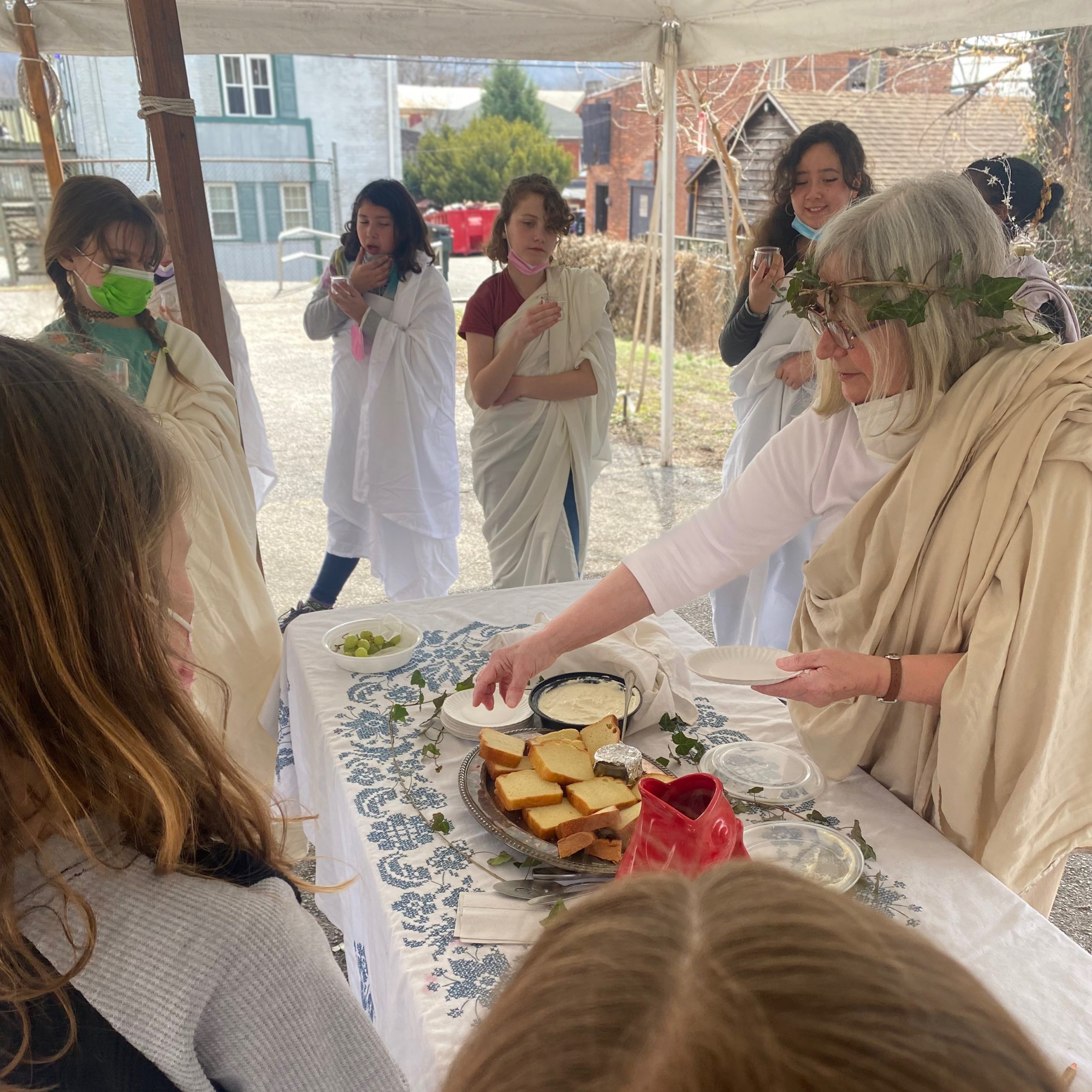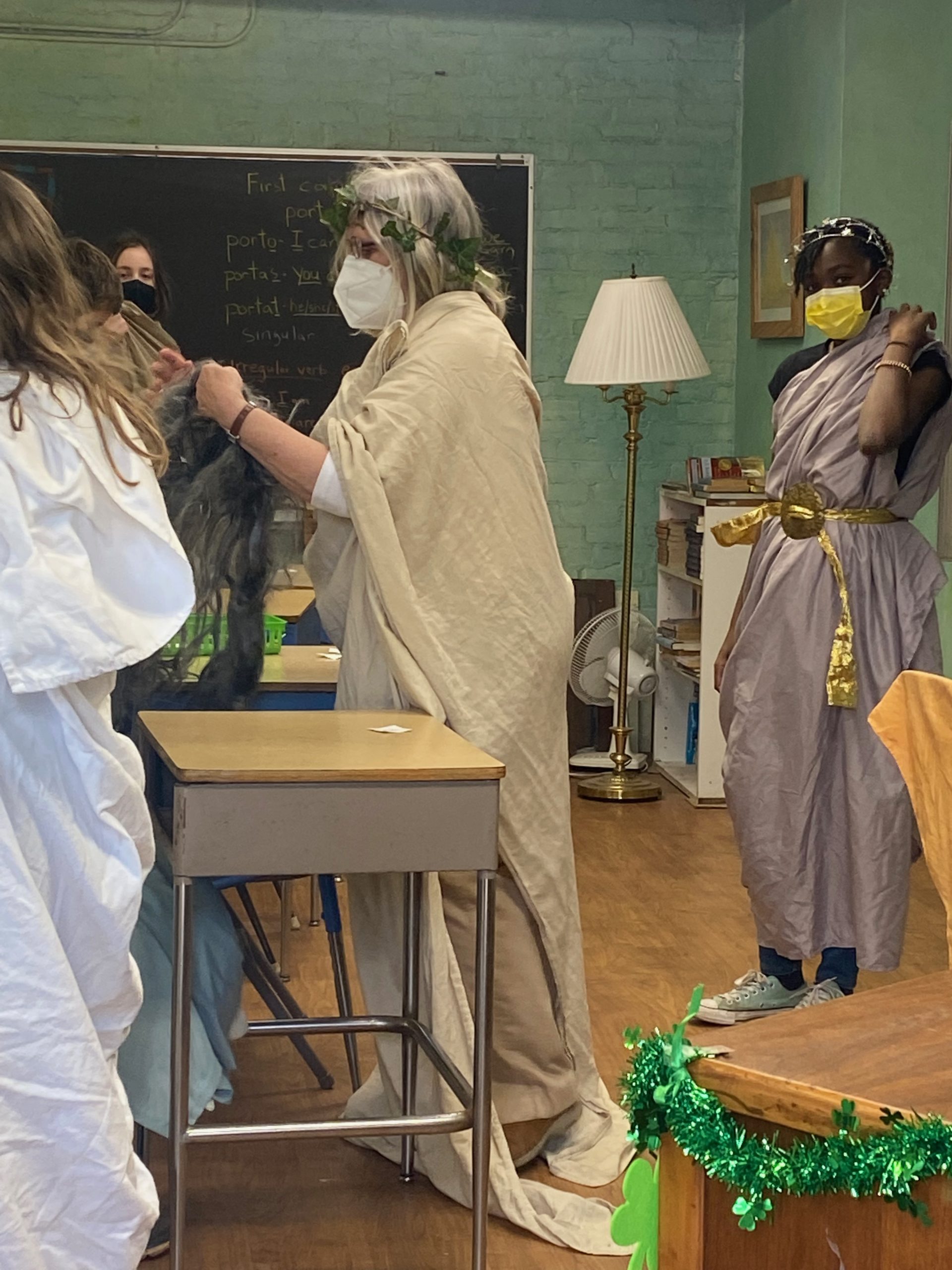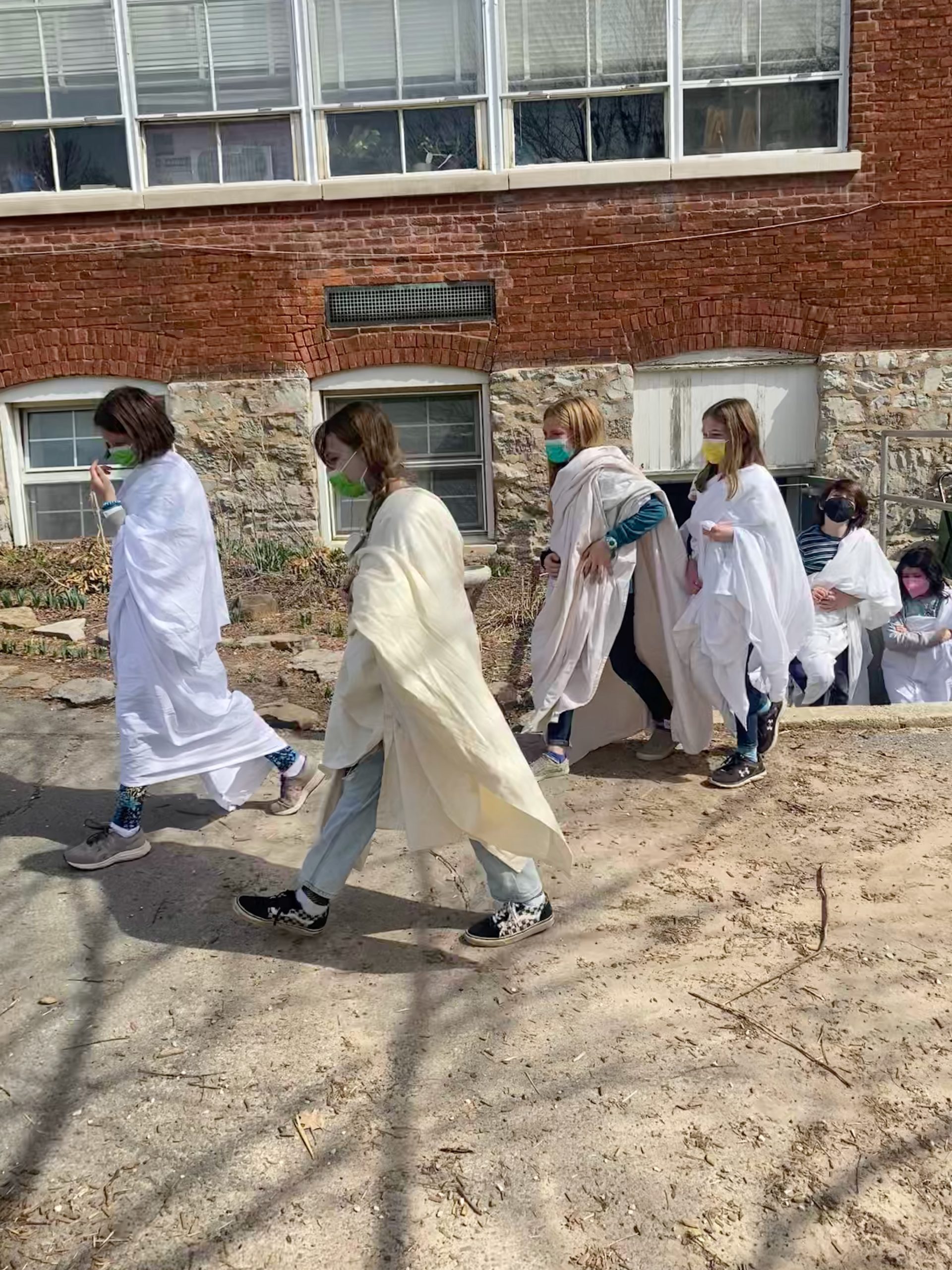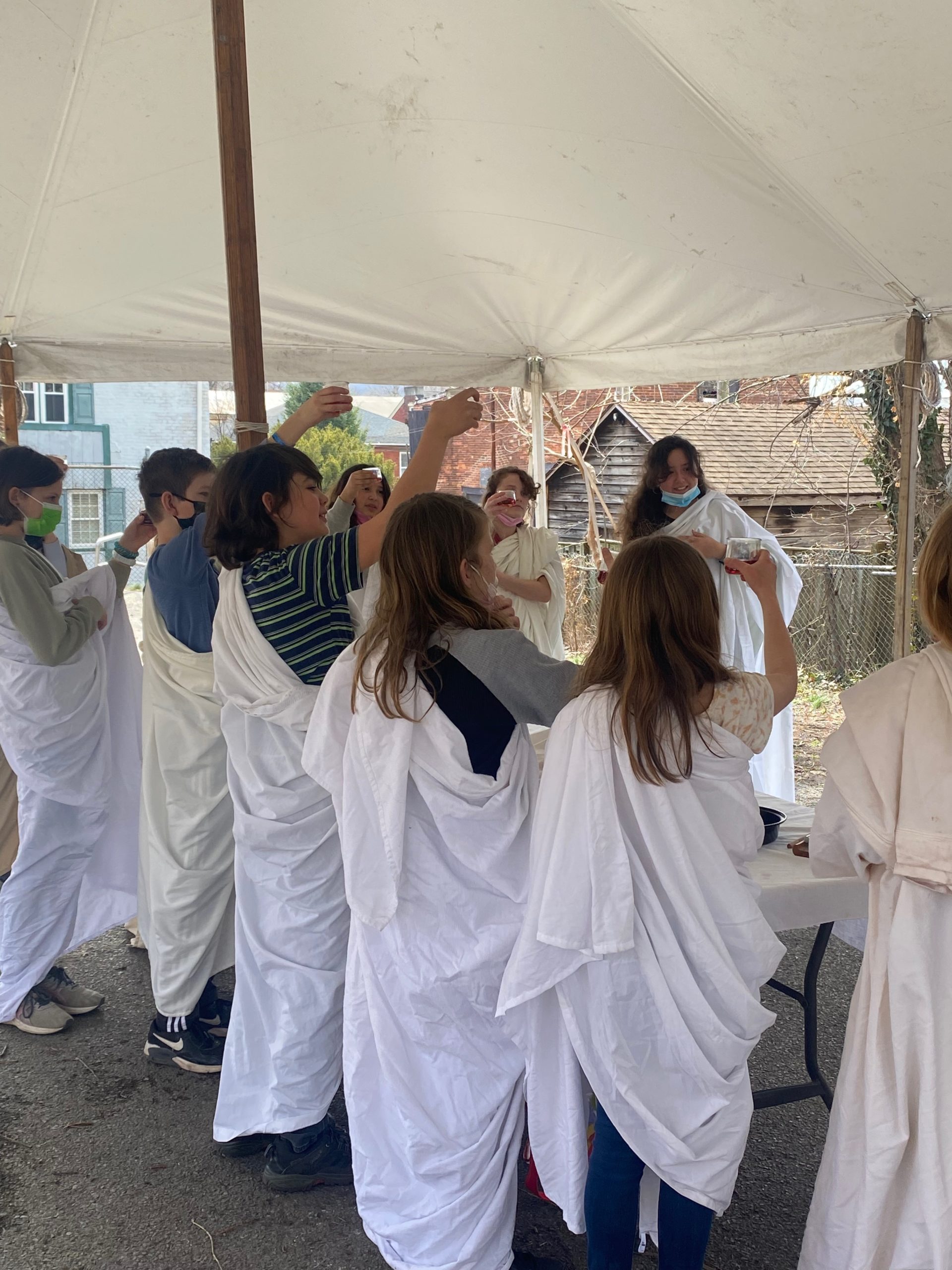Written by Latin teacher, Magistra Sweeney
At SWS our Classical Latin classes learn grammar, vocabulary and pronunciation, but also live the language through the celebration of some aspects of the ancient Roman festivals. Roman history and culture come to life during recognition of Fontanalia in October, Saturnalia in December, and, most recently, Anna Perenna, the early Roman New Year’s celebration, in March.

The origin stories of Anna Perenna are many, but we follow this version. In 494 BCE, the plebeians, tired of paying taxes and being conscripted into the army with no say in the government, left Rome and secluded themselves on the Sacred Mountain. An elderly woman, Anna, kept them alive with cake for some time, until they were coaxed back to Rome with a promise of better representation. After Anna’s death, she was declared a goddess and called Anna Perenna which can be translated as “lasting throughout the year.” Her outdoor festival, which included tenting, feasting, games, dancing and singing, was held on the 15th of March when the moon was full and spring was just beginning. March was the first month of the year in the old Roman calendar, before the Julian calendar was established in 46 BCE. The god Mars represented the new year and Anna Perenna the past year.



To celebrate Anna Perenna, our Latin classes are transported to ancient Rome.The students in grades 5-8 laugh as they struggle to wrap themselves in togas. The fates choose one class member to portray the old woman, Anna, and another to portray the god, Mars. In procession with chimes ringing, we walk with some pomp and circumstance to the outdoor tent where a table is laid with a great platter of cake slices, honeyed cheese and a fish-shaped pitcher of grape juice. We toast the old year, Anna Perenna, and then the new year, Mars, with “felicem novum annum” (Happy New Year), socialize and enjoy our cake together. Then it is time for games. This year we played “abde et pete” (hide and seek) where the seeker counted from “unus to viginti” (1-20) and shouted “paratus aut non, hic venio!”(Ready or not, here I come!). Festivals create joyful memories and enliven the students’ perception of the ancient people who spoke the language they are striving to learn and translate.
